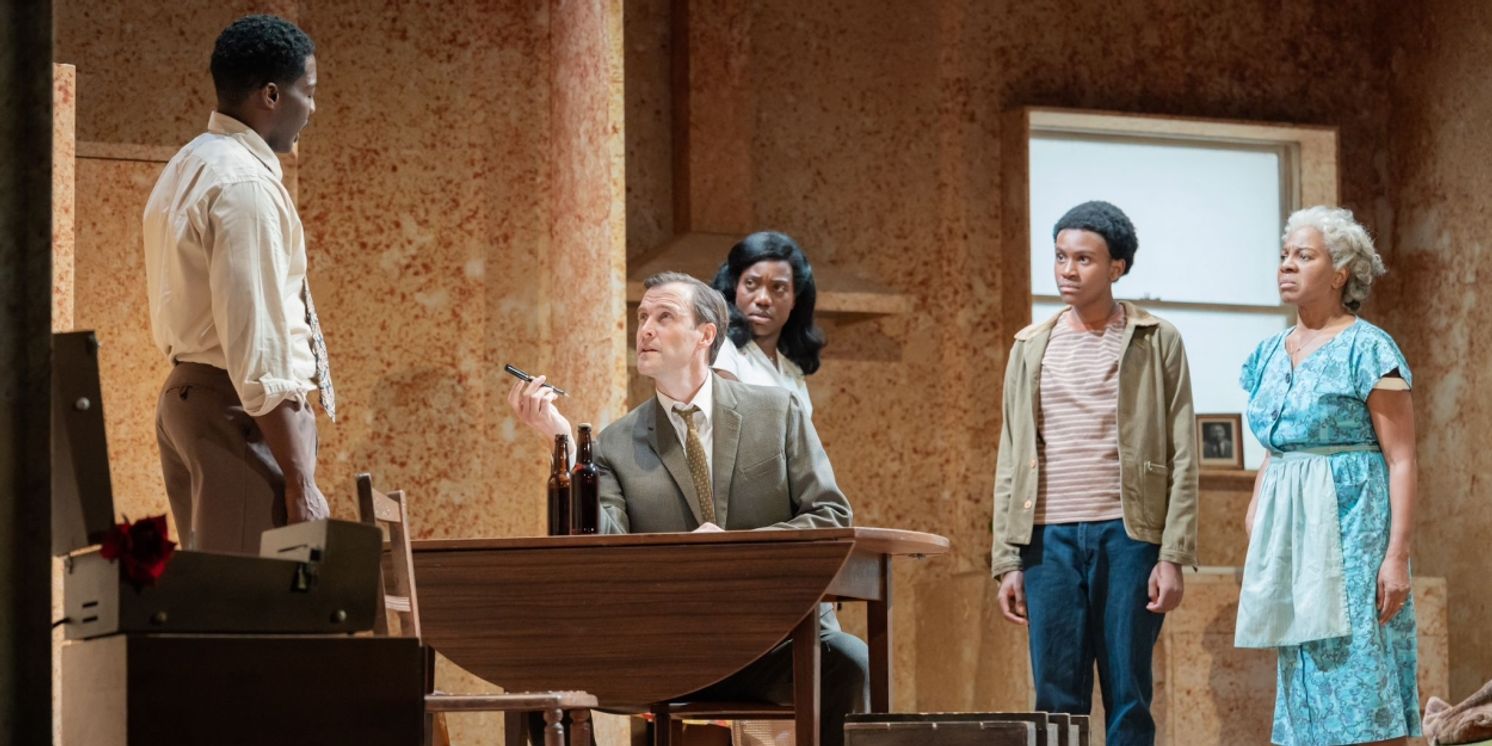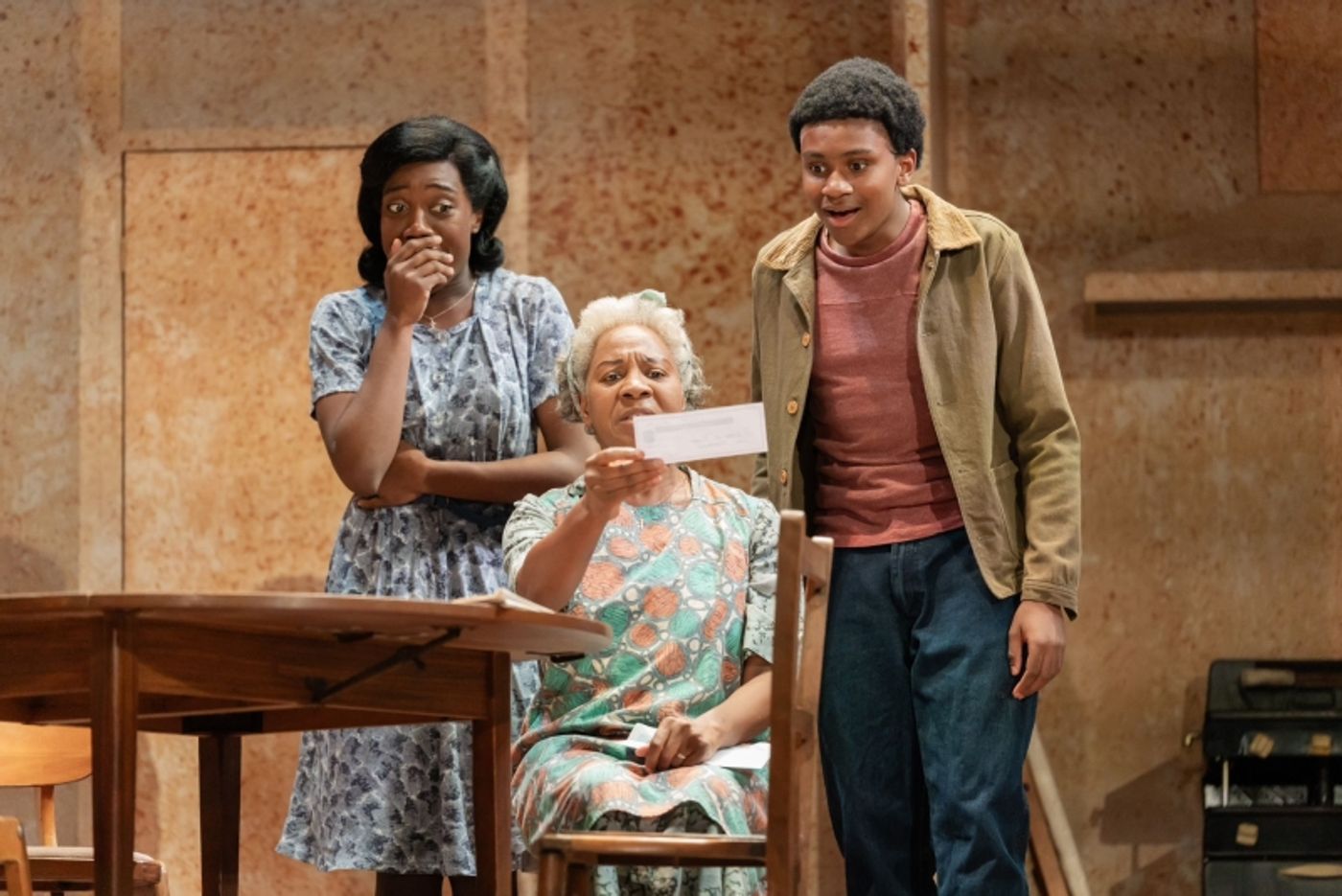Review: A RAISIN IN THE SUN, Lyric Hammersmith
Lorraine Hansberry’s seminal play continues to shock and inform

![]() Lorraine Hansberry’s A Raisin in the Sun was the first play by a Black woman to appear on Broadway. Since its first performance in 1959, it remains as hard-hitting as ever. Exploring a domestic drama in its depiction of an everyday working class Black family, with ordinary desires, conflicts and aspirations; radical at the time of writing.
Lorraine Hansberry’s A Raisin in the Sun was the first play by a Black woman to appear on Broadway. Since its first performance in 1959, it remains as hard-hitting as ever. Exploring a domestic drama in its depiction of an everyday working class Black family, with ordinary desires, conflicts and aspirations; radical at the time of writing.
After the death of the father, a $10,000 insurance cheque arrives for the Younger family. Knowing this could be life-changing, mother Lena wants to use the money to provide an education for her aspiring-doctor daughter Beneatha and to buy a house. Son Walter Lee (originally played by an up-and-coming Sidney Poitier) has other ideas, seeing the money as a means of going into a dodgy liquor business.

Photo Credit: Ikin Yum
When Lena puts a deposit on a house, she gives the rest of the money to Walter to split between the siblings. It quickly disappears after he trusts it to a supposed friend. Then hopes and dreams about a move to the new development of Clybourne Park are dashed when it is made abundently clear that the family will not be welcome in a white area.
Hansberry's writing makes every character jump off the page and the excellent cast honour this quality. Doreene Blackstock is wonderful as matriarch Lena, stoic and calm in the face of adversity. This is a woman who has worked hard all her life and both her fatigue and strength are reflected in every movement.
Solomon Israel is very believable as the volatile Walter, a misogynistic chauffeur, frustrated by what he sees as the self-imposed restrictions on his race and desperate for a life beyond his family's four walls. Seemingly chained to the ironing board, Cash Holland is passionate, but occasionally verges into slight melodrama as his put-upon wife Ruth.

Photo Credit: Ikin Yum
Joséphine-Fransilja Brookman shows real development in the character of Beneatha, starting as a petulant child who gradually grows to become aware of the importance of her heritage and Black identity. When she decides to revert to her natural hair, it is a huge statement of pride in who she is as a Black woman. In 1959, this must have seemed wild and shocking.
Jonah Russell also does a great job as Karl, the play's only white character, who oozes with passive aggression, barely concealing his racism with faux concern for the family's welfare.
Directed by Tinuke Craig, the production is long but never outstays its welcome and explores all the richness of Hansberry's language. Thankfully it is no longer unique to see a play focused on the Black experience, but with an uncomfortable rise in global populism, it clearly still has much to teach a modern audience. Many still fear difference, but A Raisin in the Sun reminds us that, despite this, there is always love and there is always hope.
Dominique Hamilton's wigs and costumes are perfectly in keeping with the period setting, as are the contents of Cécile Trémolières' set, with its retro gramophone and kitchen stove. However, the all-over paint effect looks a little too much like there has been an explosion in an orange juice factory.
Sixty years after it debuted, it is testament to the quality of Hansberry's work and those who seek to keep it alive that this revival has such depth and resonance. A paean to hope, this is a thoughtful and powerful production.
A Raisin in the Sun runs at the Lyric Hammersmith until 2 November, then moves to the Nottingham Playhouse from 5-16 November.
Photo Credits: Ikin Yum
Reader Reviews
Powered by
|
Videos

